Ahmed al-Sharaa, leader of the Hayat Tahrir al-Sham (HTS) group leading the force to overthrow Syrian President Bashar al-Assad, issued a new statement on December 8.
In a meeting with members of Syria's Druze community, al-Sharaa announced that all opposition factions would be "disbanded and their members would be trained to join the defence ministry ", according to The Telegraph today, December 17.
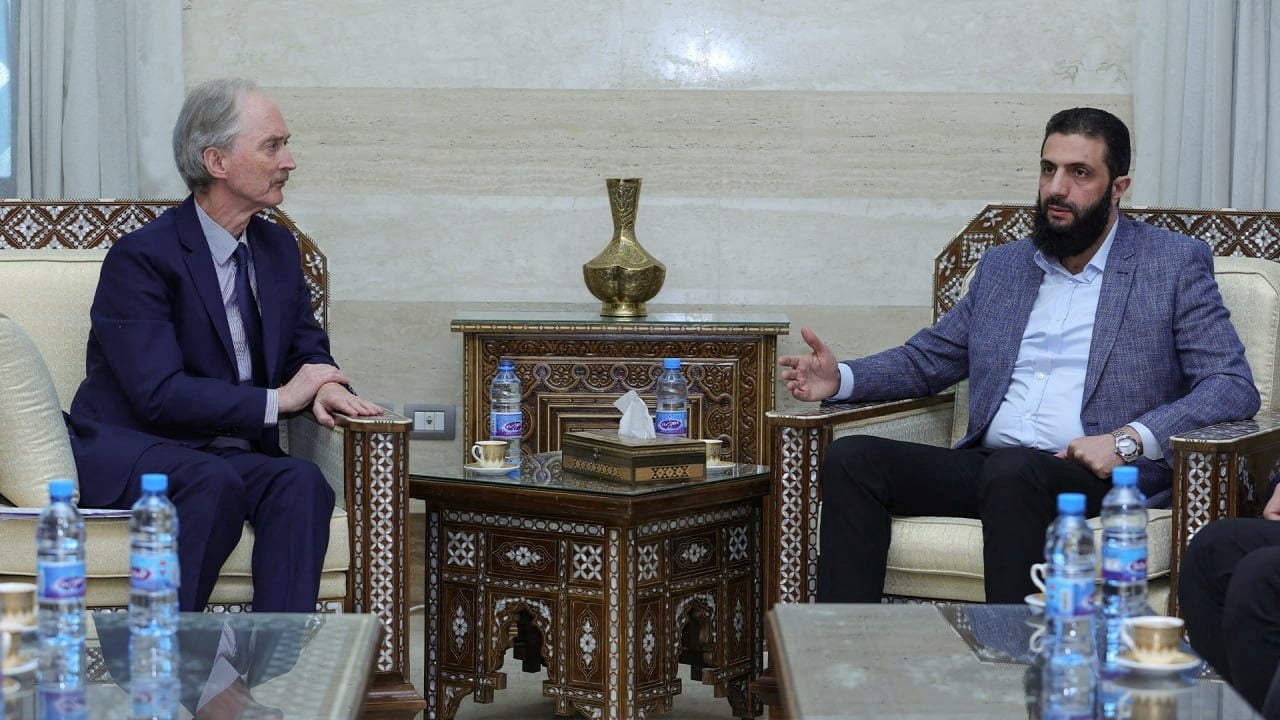
UN Special Envoy for Syria Geir Pedersen meets with HTS leader Ahmed al-Sharaa in Damascus (Syria), in this photo provided on December 15.
“Everyone will have to follow the law,” al-Sharaa added, according to posts on HTS’s Telegram channel. He also stressed the need for unity in a multi-ethnic and multi-religious country.
"Syria must maintain unity. There must be a social contract between the state and all religions to ensure social justice," al-Sharaa stressed.
Mr al-Sharaa, now seen as Syria's de facto leader, made the announcement as he sought to reassure minorities at home and abroad that the country's interim leaders would protect all Syrians, as well as state institutions.
The Fall of the Syrian Army as told by a deserter
In a separate meeting with a British delegation, Mr al-Sharaa said international sanctions on Damascus must be lifted if refugees displaced by the war are to return.
Mr al-Sharaa spoke "of the importance of restoring relations" with Britain and stressed "the importance of ending all sanctions imposed on Syria so that displaced Syrians... can return to their country".
After the fall of the al-Assad regime on December 8, European countries including Britain, Germany, France, Italy, Sweden and Norway, among others, said they were suspending the processing of asylum applications from Syrians, although it was unclear what would happen to the country.
The United States and the European Union (EU) have imposed broad sanctions on the al-Assad regime, including an embargo on arms sales to Syria and oil imports from Syria as well as a ban on investment in the country's oil industry.
Sanctions have helped cripple the war-torn country's economy ; hyperinflation is rampant and at least 70% of the population lives in poverty, according to The Telegraph .
The fall of the al-Assad regime has left Western countries in a dilemma over how to deal with HTS, which has its roots in the al-Qaeda network.
HTS claims to have renounced jihadism but is still accused of human rights violations by the United Nations and several Western countries, including the US and UK, and is still considered a terrorist group by the United Nations, the US and the UK.
The EU's new foreign policy chief Kaja Kallas said on December 16 that the bloc should be ready to ease sanctions on Syria if the country's new leadership takes "positive steps" to form an inclusive government and respect the rights of women and minorities.
“We want to see no extremism, no radicalization,” Kallas stressed, adding that HTS has “spoken correctly” so far but the group will be judged on its actions. Kallas added that she had sent a senior diplomat to meet with HTS officials.
Source: https://thanhnien.vn/luc-luong-nam-quyen-muon-giai-tan-moi-nhom-vu-trang-o-syria-185241217143943855.htm


![[Photo] General Secretary To Lam attends the conference to review 10 years of implementing Directive No. 05 of the Politburo and evaluate the results of implementing Regulation No. 09 of the Central Public Security Party Committee.](https://vphoto.vietnam.vn/thumb/1200x675/vietnam/resource/IMAGE/2025/5/19/2f44458c655a4403acd7929dbbfa5039)
![[Photo] Panorama of the Opening Ceremony of the 43rd Nhan Dan Newspaper National Table Tennis Championship](https://vphoto.vietnam.vn/thumb/1200x675/vietnam/resource/IMAGE/2025/5/19/5e22950340b941309280448198bcf1d9)
![[Photo] Close-up of Tang Long Bridge, Thu Duc City after repairing rutting](https://vphoto.vietnam.vn/thumb/1200x675/vietnam/resource/IMAGE/2025/5/19/086736d9d11f43198f5bd8d78df9bd41)


![[Photo] President Luong Cuong presents the 40-year Party membership badge to Chief of the Office of the President Le Khanh Hai](https://vphoto.vietnam.vn/thumb/1200x675/vietnam/resource/IMAGE/2025/5/19/a22bc55dd7bf4a2ab7e3958d32282c15)


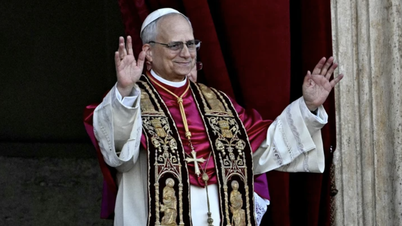

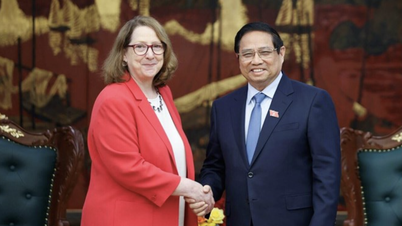




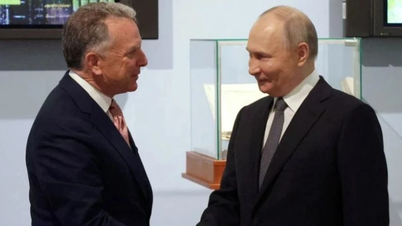


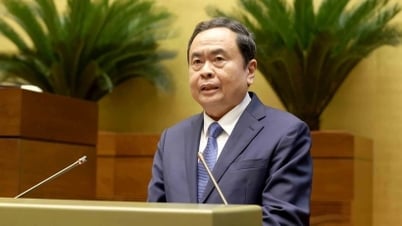
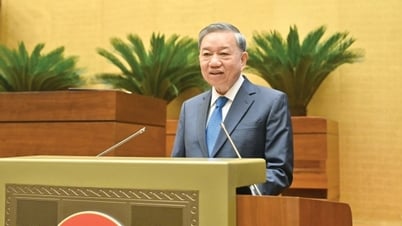
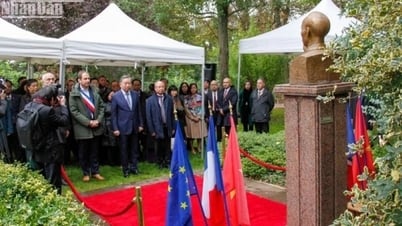
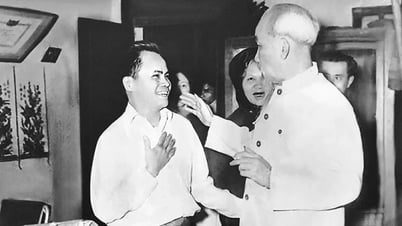











![[Photo] Prime Minister Pham Minh Chinh inspects the progress of the National Exhibition and Fair Center project](https://vphoto.vietnam.vn/thumb/1200x675/vietnam/resource/IMAGE/2025/5/19/35189ac8807140d897ad2b7d2583fbae)
















































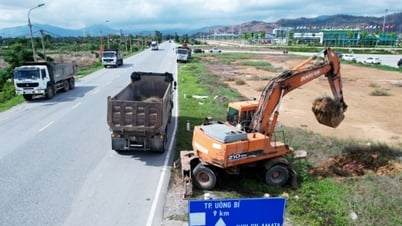

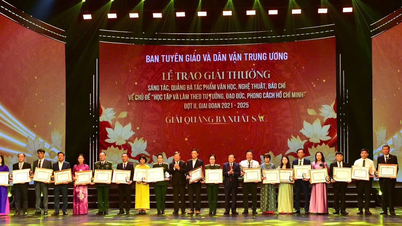







![[VIDEO] - Enhancing the value of Quang Nam OCOP products through trade connections](https://vphoto.vietnam.vn/thumb/402x226/vietnam/resource/IMAGE/2025/5/17/5be5b5fff1f14914986fad159097a677)



Comment (0)